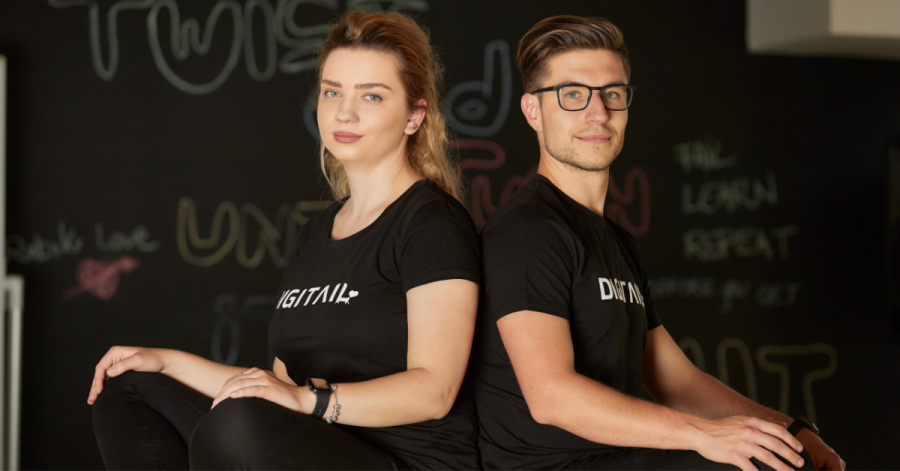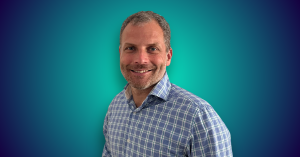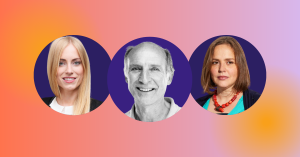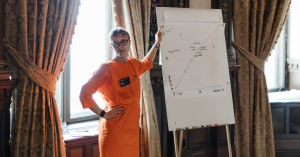“If you want to go fast, go alone. If you want to go far, go together.”
The success of a startup often hinges on the strength and compatibility of its founding team. As Harvard Business School professor Noam Wasserman mentions in his book The Founder’s Dilemma, over 65% of startups fail due to co-founder conflict, underscoring the critical nature of these relationships. Moreover, additional insights from the book show that about 50% of founding teams split up under high-pressure situations, often due to misaligned goals or differences in vision.
These findings suggest that while the synergy between co-founders can be a formidable engine of growth, it can also become a critical point of vulnerability, sometimes hard to handle.
To better understand how the co-founder relationship works in practice, we looked back at what Ionut Vlad of Tokinomo, Orlin Radev of AMPECO, Sebastian Gabor of Digitail shared on The Recursive Podcast. Additionally, we talked with a former FinTech start-up co-founder (who asked to share her story anonymously) about her learning and why it didn’t work out for their team.
Do you want to add your perspective or comment to this story? Reach out to Elena on LinkedIn or at [email protected].
The importance of founder alignment
Going together in the same direction requires that all co-founders know what that direction is and agree with it. But does it work in practice?
It does for AMPECO, a white-label EV charging management platform.
“We are 6 co-founders and in our case it’s the right number. With many of our co-founders we knew each other for years, even from childhood. We knew what to expect and the personalities of each other. It was natural who would take on what. I don’t think it would work the same with a group of people who even if they share the same vision, they don’t know each other that well,” Orlin Radev told Irina in episode 64.
But even knowing your co-founder from previous work experience is not a prerequisite for a successful co-founder’s relationship. Here’s why it didn’t work for another FinTech startup.
“I met my previous co-founder in a project where we worked together. He liked my idea and joined as CTO. I think it’s very important to be aligned on how much time and money one can put into a project. Working in a corporation at C-level, we had processes, procedures and what not. I was prepared that in a startup you need to do everything, from junior tasks to important decisions. I was used to working long hours before, so this was not new to me. My co-founder, on the other hand, had a more relaxed approach. Another lesson I learned is to be clear on how long each founder can live without an income. Being very early, we were not generating revenue and didn’t get an investment. For the entire period of the project, we used our money for the company. I was getting to the end of my savings and was pushing more than my co-founder to find other ways to fund ourselves. Overall it impacted our way of working,” a former co-founder told us.
Opposing personalities
In the startup bible it is mentioned that the co-founders need to have different skills and ways of work. But, in human nature it’s easier to just work with someone like you who understands you without even speaking. So, what should you do?
Ionut Vlad shares that opposing personalities actually worked out for Tokinomo, the producer of in-store robots for marketing.
“I co-founded the company with my brother in law and it’s interesting because we have opposite personalities. I am generally the serious type, more serious, more rational, mostly an introvert. He is the funky, crazy guy, more likable and an extrovert. We started to borrow things from each other and form a good team, but with effort. It wasn’t easy, it’s a process and we almost split up at some point,” he tells in episode 78.
It was also a good recipe for Digitail, the software for vets, that the co-founders are so different from one another.
“Me and (ed.note: my co-founder) Ruxandra didn’t kill each other after three startups. We have a lot of time to spend together. We started working together in 2013 when she was an intern at IT Gambit (ed.note: one of Sebastian’s earlier startups). There is a magical synergy here because she is very organized, detail oriented and makes things happen. Me on the other hand , I am the visionary, thinking about where we should go next,” Sebastian Gabor mentioned in episode 83.
It doesn’t always work out
“I think that in the startup world it’s very important to have someone to lean on, especially when the times are challenging,” Orlin Radev of AMPECO says.
However, in the startup world, but not only, one advice doesn’t fit all. You can do all by the book, yet reach a different outcome.
“In the beginning we discussed extensively about our collaboration, how we would work, looking at it from different angles, even failure. Yet, when we came to it, I understood we could have done it better,” the former FinTech founder recalls.
“For example, we didn’t talk about what happens with our IP rights. Because we didn’t register it with the company, but as individuals, it was hard in the end to negotiate who to give up on it, for the other to continue the project. I would recommend to other founders to be careful in this regard and get a tech lawyer to consult on this. This situation was a red flag for investors, ” she continues.








